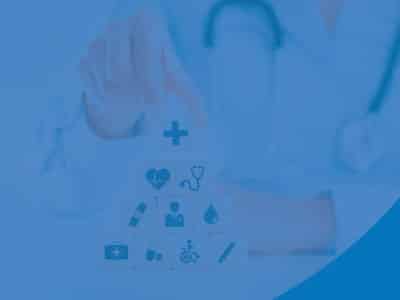What is dual diagnosis in Fort Collins, CO?
People with mental illnesses might develop an addiction, or people with an addiction might begin using alcohol and drugs. But alcohol and drugs can make a depressed person more depressed, and depression can lead to more substance use and addiction, thus prompting the need for dual diagnosis treatment in Fort Collins, CO.
When a person has problems with substances and mental health, it’s known as a dual diagnosis, co-occurring diagnosis, co-occurring disorder, or comorbidity. Dual diagnosis treatment centers in Fort Collins, CO, acknowledge that these situations occur in their city and throughout the state.
For example, in 2016 in Larimer County, Colorado, the home of Fort Collins:
- 49 drug overdoses occurred.
- 83 people killed themselves.
- 28% of the people who took their own lives had current mental health treatment.
- 66% of the people who killed themselves had alcohol or drugs in their systems.
- 17 of the 49 drivers involved in fatal motor vehicle crashes (34.6%) were under the influence of drugs and alcohol.
- 55 of the 105 (52%) of the people who died accidentally had drugs or alcohol in their systems.
Of the 49 overdoses that occurred in Larimer County in 2016:
- 14 overdoses were due to prescription opioids.
- 9 were heroin-related.
- 8 occurred because of fentanyl.
- 8 occurred due to speedballs (combinations of stimulants such as methamphetamine or cocaine with opioids such as heroin).
- 5 were related to other prescription drugs.
- 3 occurred due to methamphetamine (meth).
- 2 were related to alcohol.
Such challenges indicate the need for mental health and addiction treatment centers in Fort Collins, CO.

What is mental health and addiction treatment in Fort Collins, CO?
Problems with mental health and substance use disorder often go hand in hand.
People with anxiety might use alcohol or drugs to soothe themselves. If they frequently use drugs or alcohol for their anxiety, they could become dependent. If they require increasing amounts to feel the effects of such substances, they could become tolerant. They could also become addicted.
Or, people with addictions might become anxious or depressed, so they might use more of the substances to try to forget their anguish. The combination of mental illness and drug abuse in Fort Collins, CO, and elsewhere is common. But treatment addresses both.
What are some co-occurring disorders in Fort Collins, CO?
Substance use disorder or addiction are both sometimes known as substance use disorders (SUDs). A person who has both a SUD and a mental illness has a dual diagnosis or a co-occurring disorder. Some of the mental illnesses that accompany SUDs include:
- Anxiety
- Depression
- Eating disorders
- Post-traumatic stress disorder (PTSD)
- Borderline personality disorder (BPD)
- Bipolar disorder
Dual diagnosis rehab in Fort Collins, CO, acknowledges that people might have multiple conditions at once and works to treat them all.
Why is inpatient dual diagnosis treatment in Fort Collins, CO important?
A dual diagnosis program in Fort Collins, CO, can be outpatient or inpatient.
Outpatient care might allow people to stay at home or away from their treatment centers while they receive assistance. It could be a solid option for people who want to keep working, going to school, or fulfilling other responsibilities while undergoing treatment.
At the same time, people who participate in outpatient treatment programs might face temptations and triggers that could make them want to use drugs and alcohol.
Because they require people to live in treatment centers, inpatient or residential dual diagnosis treatment centers in Fort Collins, CO, separate people from such temptations.
Staying at an inpatient dual diagnosis treatment center in Fort Collins, CO, removes negative influences from a client’s life while helping them develop more positive approaches.
Why is therapy a part of mental health and substance use disorder treatment centers in Fort Collins, CO?
Speaking of finding positive approaches, therapy for mental illness and drug abuse in Fort Collins, CO, does just that.
Cognitive behavioral therapy, also known as cognitive-behavioral therapy or CBT, is a type of therapy. It strives to change the ways people think and feel in the hopes that it will ultimately change the ways they act.
Many treatment centers and programs use CBT and other therapeutic methods because addiction is a mental condition as well as a physical one.
Why do dual diagnosis treatment programs in Fort Collins, CO incorporate support groups?
A dual diagnosis treatment facility in Fort Collins, CO, is also likely to have a sobriety support group or two.
Groups such as LifeRing Secular Sobriety and SMART Recovery use evidence-based approaches to address problems with drugs or alcohol. Other groups are more spiritual and discuss a higher power, such as the 12-step groups, Alcoholics Anonymous and Narcotics Anonymous.
Sobriety support groups give people the opportunity to meet and talk with each other, whether they’re staying in a dual diagnosis treatment center in Fort Collins, CO, are participating in outpatient plans, or have finished their formal programs.
Since sobriety support groups include people who may have had similar problems with substance misuse and mental health, their members may better understand how others are feeling. Members can provide empathy and advice as well as solutions.
In fact, dual diagnosis treatment in Fort Collins, CO, strives to understand how people feel. They want to help people feel—and live—better.
Sources
Medical disclaimer:
Sunshine Behavioral Health strives to help people who are facing substance abuse, addiction, mental health disorders, or a combination of these conditions. It does this by providing compassionate care and evidence-based content that addresses health, treatment, and recovery.
Licensed medical professionals review material we publish on our site. The material is not a substitute for qualified medical diagnoses, treatment, or advice. It should not be used to replace the suggestions of your personal physician or other health care professionals.







